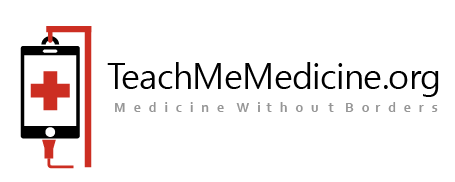Neurology and Sleep Medicine Curriculum – Students will have to learn and be tested on the following information laid out in the curriculum*. All information can be accessed in the resources and lecture videos listed below the curriculum.
Clerkship Overview
This clerkship introduces students to the discipline of neurology by providing a broad exposure to the fundamental elements related to delivering clinical care to a neurological patient and the fundamental concepts associated with ethics, research and education in neurosciences. Students rotate through inpatient and outpatient clinical sites. Instruction occurs through direct patient contact, bedside teaching, simulation and physical examination teaching associates and student conferences.
PRECEDE Overview
The objective of NeuroPRECEDE (Pre-Clerkship Education Exercises) is to prepare medical students for their clinical neurology experience by highlighting essential elements of the discipline. Emphasis is placed on developing and sharpening the skills required when performing a neurological exam as well as introducing fundamental knowledge and principles valuable in any clinical setting no matter the specialty. Through small-group sessions, interactive/hands-on practicums and the “Neuro Ex-Factor” competition, students are taught skills designed to enhance the Neurology Clinical Clerkship experience.
Core competencies are addressed via interactive hands-on and simulated sessions such as:
- The Lumbar Puncture Workshop & Coma Practicum
- Introduction to relevant ancillary services; PT/OT/Speech & Language Pathology
- Neuro Bootcamp, comprised of The Abnormal Neuro Exam, Neurological Emergencies and Introduction to Neuro Imaging
- Clinical Reasoning Workshop
Learning Objectives
At the completion of the neurology clerkship, students should have acquired the ability to:
- Recognize common neurological disease presentations.
- Elicit a general and focused neurological history.
- Perform and interpret a neurological examination.
- Localize a lesion based on clinical information.
- Generate a differential diagnosis for common neurological complaints.
- Develop a practical approach to the evaluation and management of common neurological complaints.
- Demonstrate a basic understanding of the common indications and interpretations for neurological diagnostics (e.g., EEG, EMG, nerve conduction studies, evoked potentials, lumbar puncture, CT and MR imaging of the brain and spinal cord).
- Recognize and appropriately respond to neurological emergencies.
- Be familiar with the ethical and psychosocial issues commonly encountered in the care of neurologically ill patients.
- Become familiar with medications used to treat neurological disorders (indication/methods of action/side effect profiles/interactions).
*Neurology and Sleep Medicine Curriculum – This curriculum is a curriculum formed by the Johns Hopkins School of Medicine.
